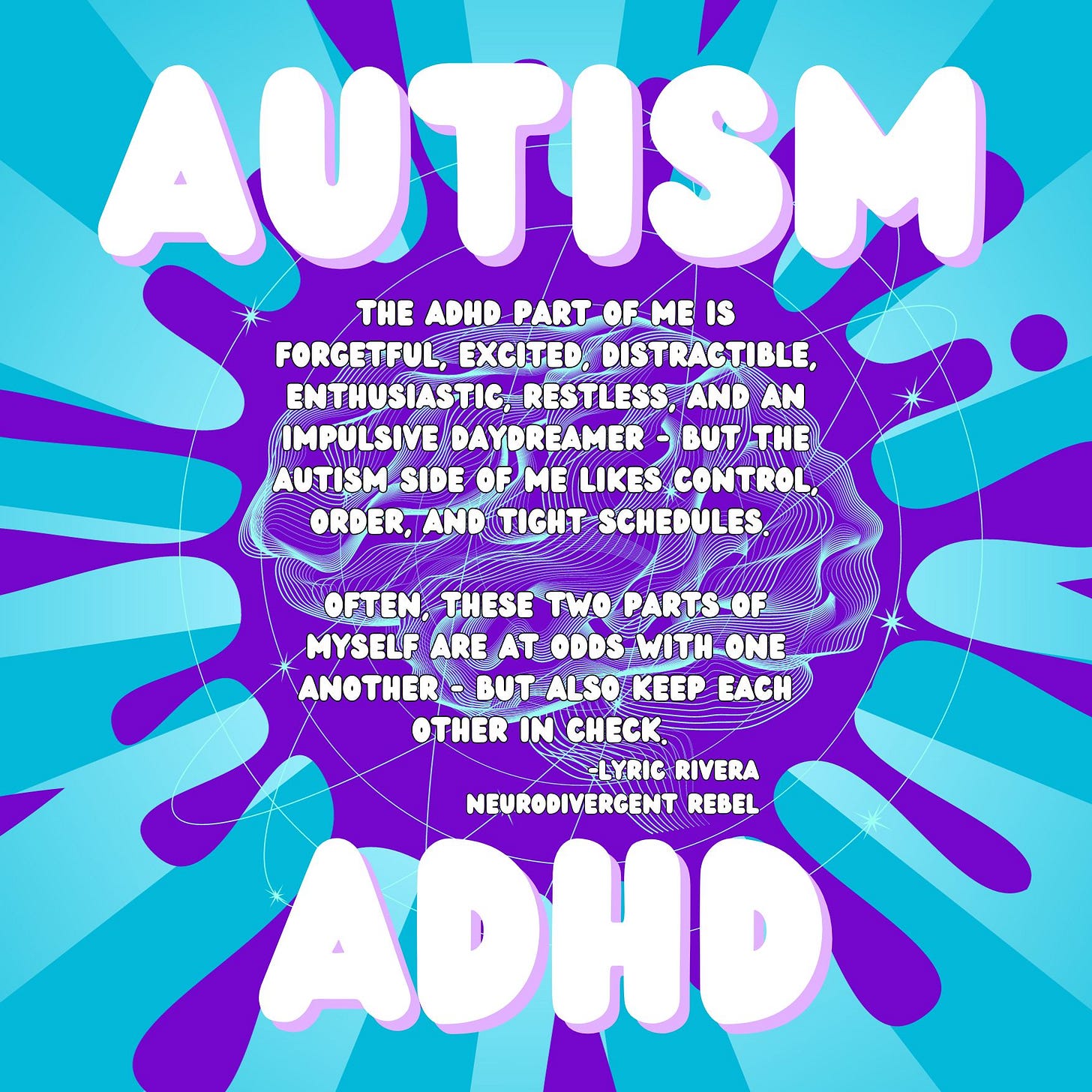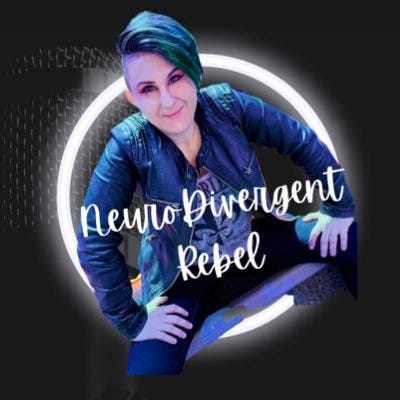Hacking my ADHD Brain: Running IT so IT doesn't run ME
"How do I get things done," despite being an ADHDer without the magical pharmaceuticals that can, for some, create what my best friend (also ADHD) calls "super brain"?
People often ask me, "How do I do it?"...
"How do I get things done," despite being an ADHDer without the magical pharmaceuticals that can, for some, create what my best friend (also ADHD) calls "super brain"?
My unmedicated ADHD brain is wild and disruptive. Sometimes, I struggle to do even the tasks that I want to be doing - because I get stuck on things I don't want to be stuck on.
I'm not just ADHD. I am AuDHD - or Autism and ADHD (a common combination of NeuroTypes or brain types).

The ADHD part of me is forgetful, excited, distractible, enthusiastic, restless, and an impulsive daydreamer - but the Autism side of me likes control, order, and tight schedules.
Often, these two parts of myself are at odds with one another - but also keep each other in check.
I've tried ADHD medications in the past.
While these pills can be a miracle for some who try them (and though they DID technically work well for me, causing me to be a much more attentive driver/human in general), the side effects were a problem that (for me) outweighed the benefits.
I suspect my being Autistic had something to do with why I struggled with the ADHD medications I tried - but this is just a personal hunch.
Part of my Autistic experience (poor interoception) is struggling to eat because I don't always sense hunger (until it's too late and I'm passing out) - a problem exacerbated by the stimulant medications that help ADHDers focus by increasing dopamine levels in the brain.
Additionally, I found the medicines made me irritable, and I didn't feel "like myself" - something that's very hard to put into words.
Not eating enough could have been making me hangry and irritable - it's hard to say.
In general, when medications have side effects, I will be the person who experiences all of them (even the rare ones), and pharmaceuticals of any kind often don't work well for me.
Is this an Autism thing? Or is it something else that I've not assessed yet?
After being diagnosed Autistic at 29, I was referred for many other tests for various health conditions (including EDS, MCAS, and Fragile X syndrome) but never went for the testing. Finding out I was Autistic was enough for me at the time. I wasn't ready to hear that I had a multitude of differences that would likely be lifelong.
It would take me several years (and many ADHDers asking me if I was also ADHD) before I would even be willing to entertain the idea that I might also be ADHD, in addition to being Autistic (despite my ADHD being visually noticeable since I was a small child).
I'm combined type ADHD, which means my ADHD brain presents in both hyperactive-impulsive and inattentive ways.
While the inattentive parts are easier for outsiders to miss (though internally, they cause me lots of confusion, frustration, and misunderstandings), my hyperactive side has gotten me into trouble since I was a kid (because those traits are the ones that others will notice).
In school, I could not stay in my seat or keep my thoughts to myself, often jumping up and blurting out my ideas without following the "proper" procedure of raising my hand before talking.
My teachers knew I was ADHD and wanted my guardians to have me tested (AND medicated so I would stop disrupting the classroom with my hyperactivity). Still, my guardians pushed back, afraid I would be forcibly medicated if I had the ADHD diagnosis.
Schools in central Texas used to (in the 90s) have (and probably still have) a bad habit of calling CPS on parents for "medical neglect" when ADHD students don't take their ADHD medications (regardless of whether the ADHDer wants to be medicated) because of the "inconvenience" we ADHDers pose on the classroom with our "disruptive outbursts." This type of enforcement is pressed harder on low-income families (who don't have the resources to fight back against this type of systemic abuse).
The fear of what may happen to me under this system (that strips people of their autonomy) prevented my NeuroDivergence from being identified earlier in my life - despite my apparent struggles and many hard-to-miss signs.
Because my Autism, ADHD, and other brain differences weren't detected until adulthood, I was expected to function at the same level (and in the same ways) as my NeuroTypical peers - despite having very different brain hardware.
These expectations, though unfair, forced me to find ways to cope that emulated NeuroTypical functioning (often at the expense of my natural, NeuroDivergent ways of doing things).
When I discovered, I was Autistic and then ADHD a few years later, I learned more about how my AuDHD brain works and ways to better work with my brain instead of working against it (as I had done for most of my life).
Understanding myself has helped me build my life around my AuDHD brain - instead of flexing myself into a life catered to a NeuroTypical norm that I will never fit.
Paid subscribers have access to the full post.
NeuroDivergent Rebel’s Substack is a reader-supported publication. Paid subscribers can read the rest of this post as a thanks for their support. To receive new posts and support my work, please consider becoming a paid subscriber (for just $5 a month - less when you subscribe annually).
I aim to create and provide resources that will add value to your life.
Keep reading with a 7-day free trial
Subscribe to NeuroDivergent Rebel’s Substack to keep reading this post and get 7 days of free access to the full post archives.


